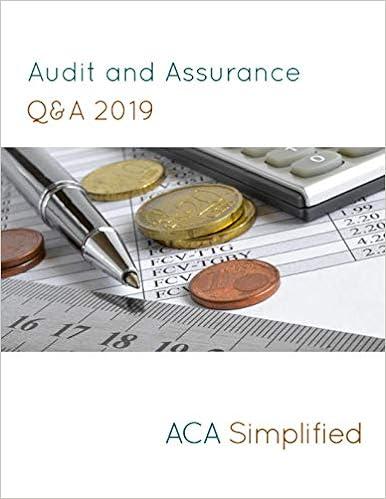Question
The Organization for Economic Cooperation and Development (OECD) and the European Union (EU) have made major headlines in the tax area for the last few
The Organization for Economic Cooperation and Development (OECD) and the European Union (EU) have made major headlines in the tax area for the last few years. Use your subscription to the Wall Street Journal to conduct research on a tax proposal from either the EU or the OECD. Briefly summarize the proposal (as outlined in the Wall Street Journal article) and discuss whether you agree or disagree with the proposal.
The article
Biden and the OECDs Taxation Without Representation
Congress refused to enact the Pillar 2 agreement that requires all countries to tax large corporations.
The Declaration of Independence complained that Britain was imposing Taxes on us without our Consent, and Americans rallied around the idea of no taxation without representation. They wanted to be taxed by officials they elected, not by a faraway government that wasnt accountable to them.
The Biden administration has lost sight of this tradition, empowering another unaccountable entity from across the oceana Paris-based nongovernmental organization called the Organization for Economic Cooperation and Developmentto dictate aspects of U.S. tax law. Treasury Secretary Janet Yellen has worked with the OECD to forge an agreement known as Pillar 2, which requires all countries to tax large multinational corporations at a rate of at least 15%. More than 130 countries joined this agreement in October 2021. When it starts to take effect in 2024, Pillar 2 is supposed to prevent a race to the bottom, in which countries compete for investment by cutting corporate taxes.
Congress has pushed back, however, refusing to enact a Pillar 2 minimum tax. (Congress actually did enact a 15% minimum tax, but it doesnt satisfy the OECDs criteria.)
While the Pillar 2 framework purports to be voluntaryallowing countries to decide whether to adopt its minimum taxthere is a steep price for saying no. If a country hasnt enacted this tax by the end of this year, other countries can step in to collect (and keep) this tax starting next year.
If a U.S. multinationalsay, Appleuses legal tax-planning strategies to reduce its effective tax rate below 15% on its U.S. income, Pillar 2 authorizes other countries such as France or Germany to make up the difference by collecting extra tax from Apple. Through this top-up tax, other countries collect and keep the tax that Congress has chosen not to collect.
So under Pillar 2, the tax burden on U.S. multinationals will be set not by Congress but by other countries under the auspices of the OECD. This isnt the way taxes are supposed to be imposed. Under our Constitution, only Congress has the power to lay and collect taxesnot the president and certainly not an NGO.
If you think the global minimum tax is a good idea, consider if its really a good idea to establish a precedent for the executive branch to pressure and circumvent Congress through such a deal with an international organization. In effect, the Pillar 2 agreement says that if Congress wont increase U.S. taxes, other countries can step in to do it. This tactic could be used by either political party. If President Biden loses the 2024 election, a Republican administration could use it to undercut legislation the Biden administration holds dear: the hundreds of billions of dollars in clean-energy tax credits enacted last summer.
Imagine that a U.S. multinational has already used other tax-planning strategies to reduce its effective tax rate to 15%. If an energy credit brings its tax bill on U.S. income below 15%, will the multinational become subject to a top-up tax? Can France or Germany take back whatever tax savings these energy credits offer? If the answer is yes, the energy credit would no longer provide a tax benefit, and thus it wouldnt motivate a company with an effective tax rate close to 15% to invest in clean energy.
Lets say the next president doesnt like these energy tax credits and asks Congress to repeal them, but Congress says no. Faced with opposition from Congress, the new president could turn to the OECD and ask it to undermine these credits with the top-up tax. Like the Biden administration, the next president could get a result that Congress wont enact.
At least some OECD members would be happy to oblige, if only because they dont like these credits. Germany, France, South Korea and Japan have all complained that some of these tax breaks are available only if the relevant technology is made in the U.S. While the OECD gave the administration good news earlier this yearconfirming that some of these energy credits wont trigger a top-up taxthe OECD hasnt made a judgment about other credits. In principle, the OECD also might find ways to modify the guidance it already has given, especially if the next administration wants these changes.
The better course is to respect Congresss constitutional role, even when it refuses to enact policies the administration wants. When this happens, the right response is to make the case to voters in the next election and replace the members of Congress. This approachtaxation with representationis the way American democracy is supposed to work.
Mr. Schizer is dean emeritus of Columbia Law School and author of How to Save the World in Six (Not So Easy) Steps: Bringing Out the Best in Nonprofits.
Step by Step Solution
There are 3 Steps involved in it
Step: 1

Get Instant Access to Expert-Tailored Solutions
See step-by-step solutions with expert insights and AI powered tools for academic success
Step: 2

Step: 3

Ace Your Homework with AI
Get the answers you need in no time with our AI-driven, step-by-step assistance
Get Started


